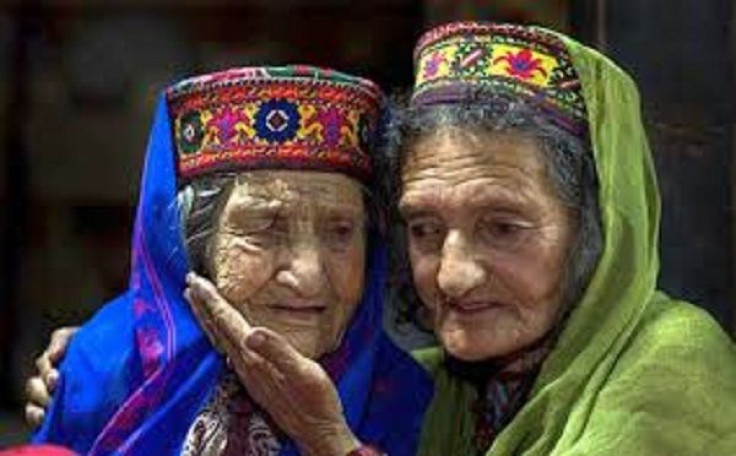Anti-ageing secrets of Pakistan’s Hunza tribe members who live up to 160 years

For Cambridge University researchers, the secret to anti-ageing is a chocolate with anti-oxidants to help reduce wrinkles. However, for members of the Hunza people in Pakistan – some of whom live up to 160 years – it is a combination of consuming a lot of apricots, raw fruit and vegetables, taking a bath in ice-cold water and walking a lot.
Most of them do not develop tumours, have very youthful appearance and some Hunza women give birth even at age 65. Other food they consume include nuts, legumes, cereals such a millet, barley and buckwheat, but less of cheese, eggs and milk, Health Cures reports.
Their usual walking routine is 15 to 20 kilometres daily. Meat consumption is just twice a year of lamb or chicken. They also only have breakfast and lunch, no dinner and snacks.
Infants aged two and four months only drink dried unripe apricot juice which are their protection against tumours. They make oil from apricot seeds which are rich in vitamins B-17 with known anti-cancer properties. But they take only small doses because taking too much could be fatal.
Not surprisingly, wealth among the Hunza tribe members is measured by the number of apricot trees owned.
At Nottingham University in UK, scientists say a protein found inside cells could slow down the ageing process. The protein, carbonic anhydrase, is found in the cell’s mitochondria which converts oxygen into energy. Researcher say if the protein could be controlled, it could slow down aging and achieve great progress in treatment of degenerative ailments such as Alzheimer’s and Parkinson’s, says Dr Lisa Chakrabarti, leader of the study, together with PhD student Amelia Pollard, The Sun reports.
The scientists removed all the protein within the brain cells’ and muscle cells’ mitochondria of young and normal middle-aged people using 2D gel electrophoresis process. When they analysed the protein, the researchers found that carbonic anhydrase was in high quantity in the samples of middle-aged brains compared to younger brains. Protein content was high in samples of young brains which experienced early aging. They studied the effect of carbonic anhydrase on nematode worms which led to their conclusion.
VIDEO: Hunza Diet is the SECRET to get old (145) and be happy!
Source: Lions Ground






